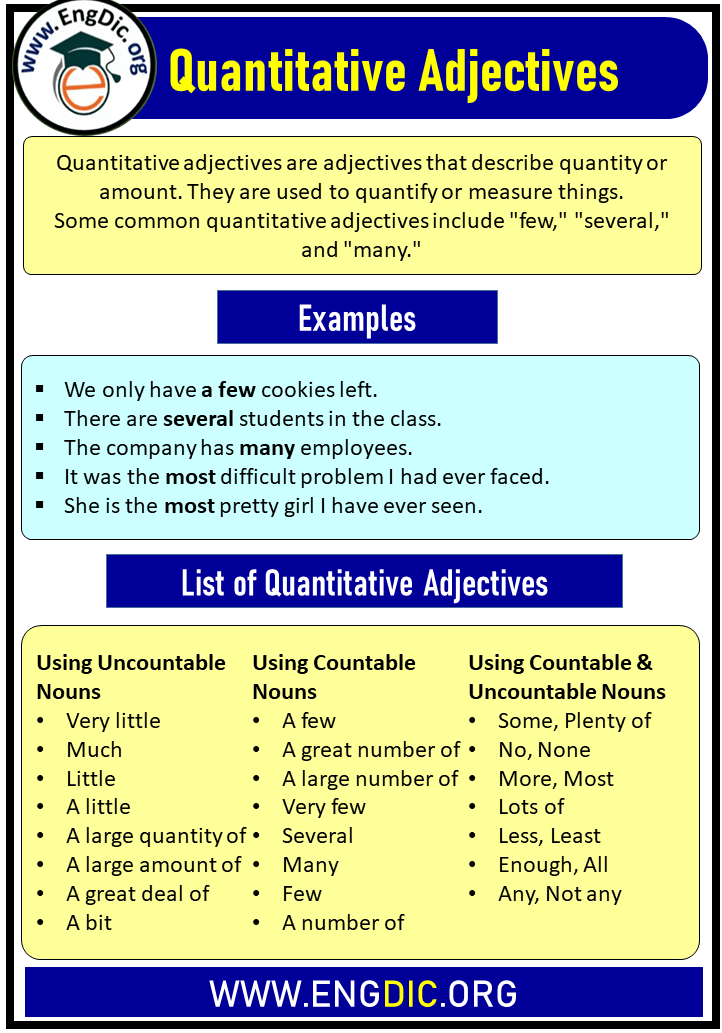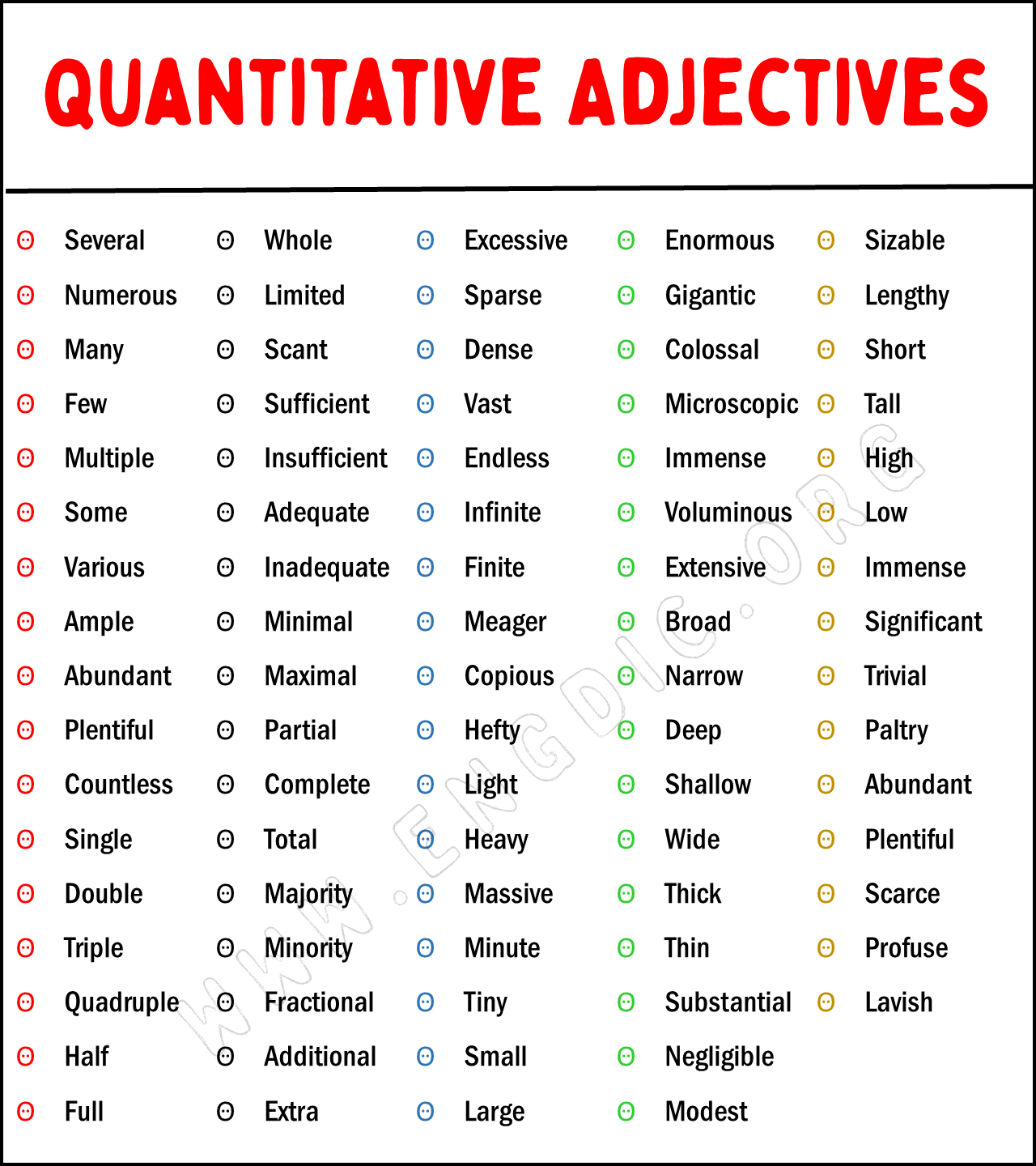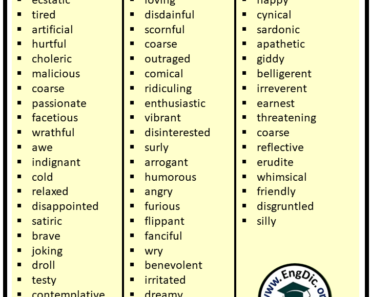English is a language that has many quantitative adjectives. These are adjectives that describe quantity or amount. In this lesson, we will list some of the most common quantitative adjectives in English. We will also provide example sentences to help you understand how to use these adjectives correctly. Keep reading to learn more!
What are the Quantitative Adjectives?
Quantitative adjectives are adjectives that describe quantity or amount. They are used to quantify or measure things.
Some common quantitative adjectives include “few,” “several,” and “many.”
Quantitative adjectives can be used in both positive and negative forms. They can also be used in comparative and superlative forms.
Use of Quantitative Adjectives in Sentences
Here are some examples of how to use quantitative adjectives in sentences:
- We only have a few cookies left.
- There are several students in the class.
- The company has many employees.
- It was the most difficult problem I had ever faced.
- She is the most pretty girl I have ever seen.
Comparative Form
The comparative form is used to compare two things. The comparative form of a quantitative adjective is created by adding the suffix “-er.”
In English, we use the word “than” to compare two things.
Here are some examples:
- She is prettier than her sister.
- He is stronger than his brother.
Superlative Form
The superlative form is used to compare three or more things. The superlative form of a quantitative adjective is created by adding the suffix “-est.”
In English, we use the word “the” before the superlative form.
Here are some examples:
- She is the prettiest girl I have ever seen.
- He is the strongest man I know.
Negative Forms
Quantitative adjectives can also be used in negative forms. The negative form of a quantitative adjective is created by adding the suffix “-less.”
In English, we use the word “not” before the negative form.
Here are some examples:
- We have a few cookies left.
- She is less pretty than her sister.
- He is less strong than his brother.

List of Quantitative Adjectives in English
Using Uncountable Nouns
- Very little
- Much
- Little
- A little
- A large quantity of
- A large amount of
- A great deal of
- A bit
Using Countable Nouns
- A few
- A great number of
- A large number of
- Very few
- Several
- Many
- Few
- A number of
- A majority of
Using Countable & Uncountable Nouns
- Some, Plenty of
- No, None
- More, Most
- Lots of
- Less, Least
- Enough, All
- Any, Not any
Full List of Quantitative Adjectives
- Several
- Numerous
- Many
- Few
- Multiple
- Some
- Various
- Ample
- Abundant
- Plentiful
- Countless
- Single
- Double
- Triple
- Quadruple
- Half
- Full
- Whole
- Sparse
- Limited
- Scant
- Sufficient
- Insufficient
- Adequate
- Inadequate
- Minimal
- Maximal
- Partial
- Complete
- Total
- Majority
- Minority
- Fractional
- Additional
- Extra
- Excessive
- Dense
- Vast
- Endless
- Infinite
- Finite
- Meager
- Copious
- Hefty
- Light
- Heavy
- Massive
- Minute
- Tiny
- Small
- Large
- Enormous
- Gigantic
- Colossal
- Microscopic
- Immense
- Voluminous
- Extensive
- Broad
- Narrow
- Deep
- Shallow
- Wide
- Thick
- Thin
- Substantial
- Negligible
- Generous
- Modest
- Sizable
- Lengthy
- Short
- Tall
- High
- Low
- Significant
- Trivial
- Paltry
- Scarce
- Profuse
- Lavish
- Plenteous
- Bountiful







